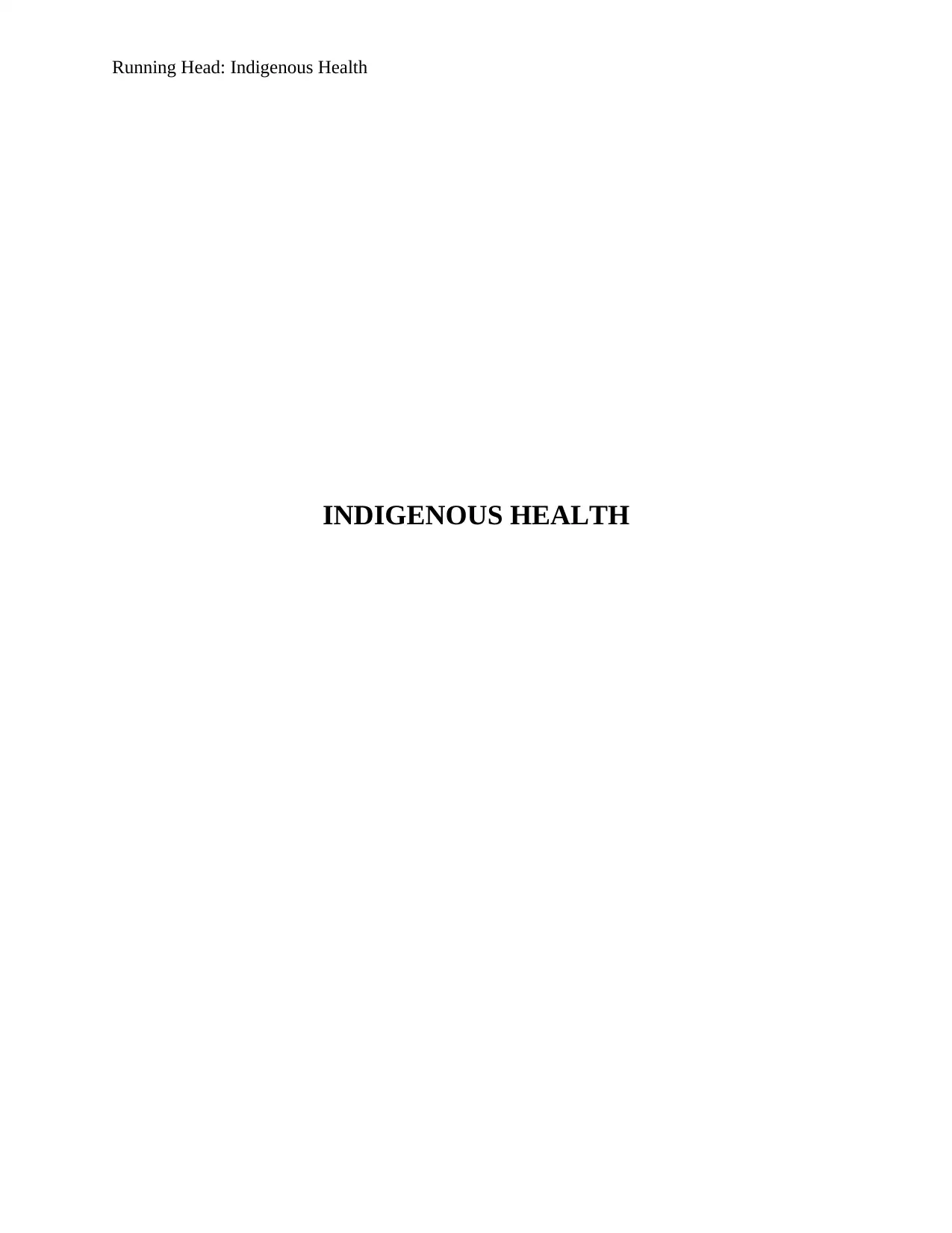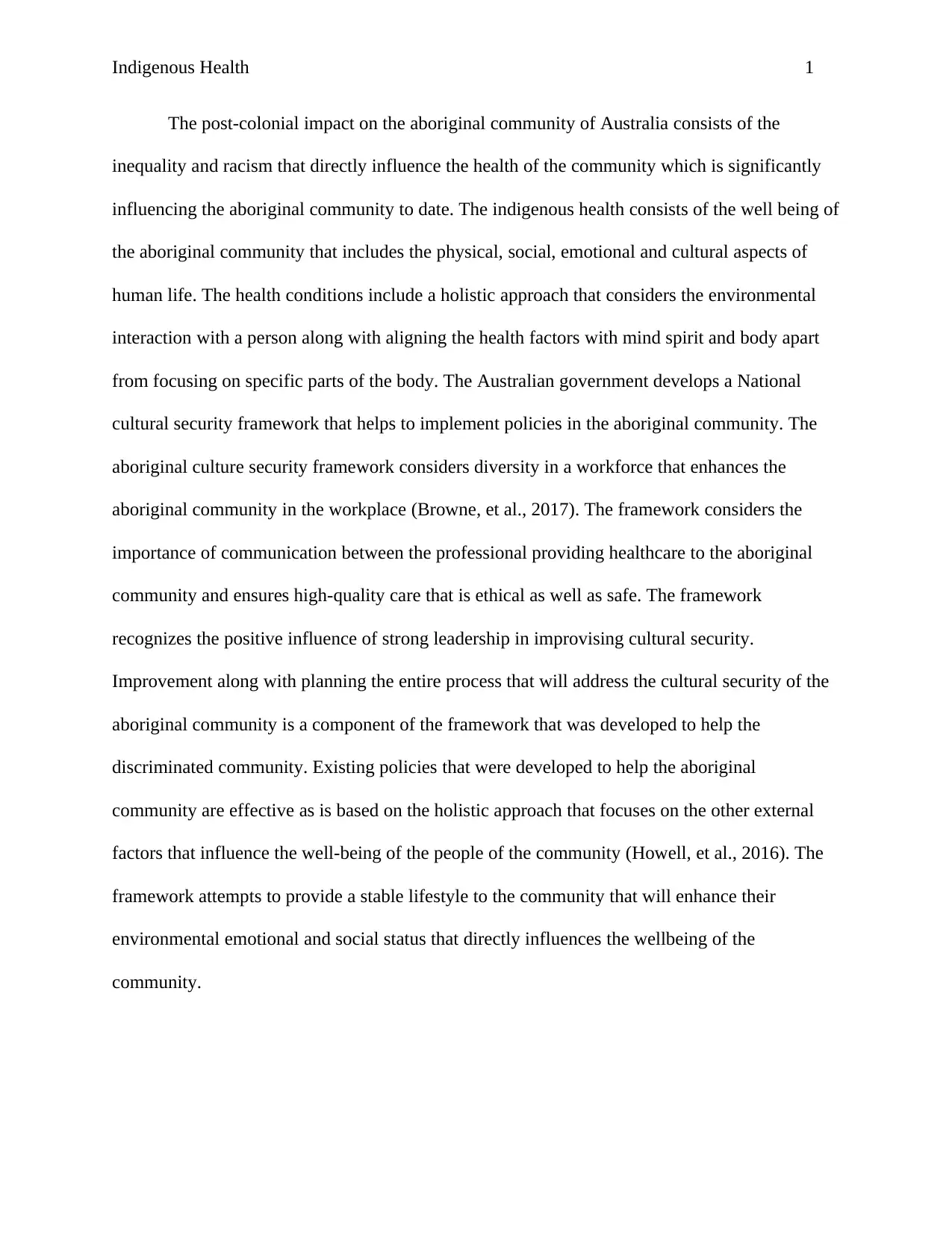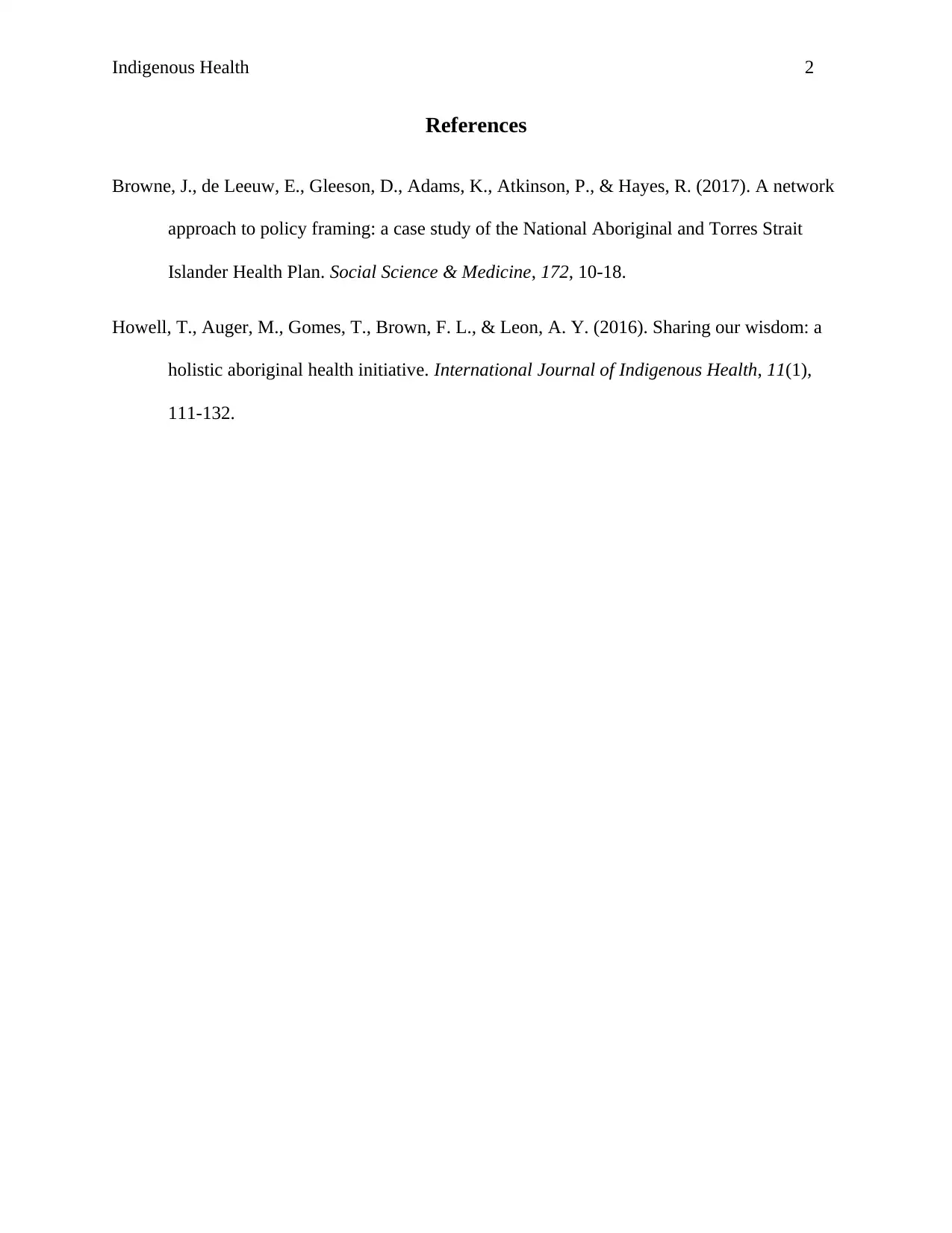Indigenous Health: Post-Colonial Impact on Aboriginal Community Report
VerifiedAdded on 2022/09/07
|3
|410
|17
Report
AI Summary
This report examines the impact of post-colonialism on the Aboriginal community's health, highlighting the inequalities and racism that affect their wellbeing. It emphasizes a holistic approach to health, considering environmental, emotional, social, and cultural factors. The report discusses the National Cultural Security Framework, which aims to improve healthcare delivery by fostering communication, ethical practices, and strong leadership. The framework focuses on enhancing the community's lifestyle and addresses the need for a stable environment to improve emotional and social well-being. The provided references support the implementation of policies that promote cultural security and improve the health of the Aboriginal community.
1 out of 3










![[object Object]](/_next/static/media/star-bottom.7253800d.svg)